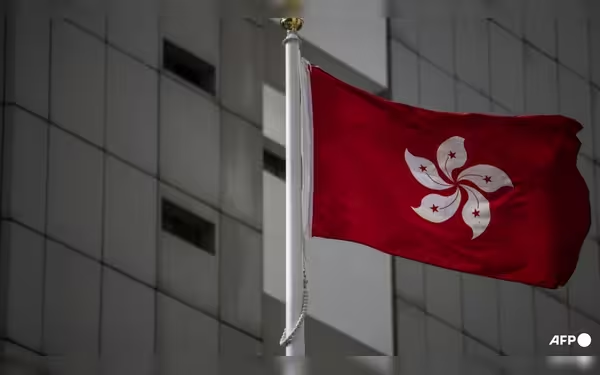Saturday, November 16, 2024 09:34 PM
Hong Kong Man Sentenced for Seditious T-Shirt Under National Security Law
- Chu Kai-pong sentenced to 14 months for wearing seditious T-shirt.
- First conviction under Hong Kong's national security law.
- Case raises concerns over freedom of expression in Hong Kong.
 Image Credits: channelnewsasia
Image Credits: channelnewsasiaA Hong Kong man, Chu Kai-pong, receives 14 months for wearing a seditious T-shirt, marking a significant case under the national security law.
In a significant ruling that underscores the ongoing tensions in Hong Kong, a 27-year-old man named Chu Kai-pong has been sentenced to 14 months in prison for wearing a T-shirt deemed "seditious" under the city's controversial national security law. This law, often referred to as "Article 23", was introduced to curb dissent and has been a focal point of criticism from various human rights organizations around the world.
Chu's case marks a pivotal moment as he becomes the first individual to be convicted under this stringent legislation. The incident occurred on June 12, a date that resonates deeply with the pro-democracy movement in Hong Kong, as it commemorates the large-scale protests that erupted in 2019. During these protests, many citizens took to the streets to voice their demands for greater democratic freedoms and autonomy from mainland China.
On the day of his arrest, Chu was wearing a T-shirt and a mask that displayed protest slogans, including the phrase "Liberate Hong Kong, revolution of our times". This particular slogan has been previously identified by the courts as capable of inciting secession, which is another serious offense under the national security law. Chief Magistrate Victor So, who presided over the case, emphasized the need for the court to reflect the legislature's serious stance on such offenses, stating, "The accused took advantage of a symbolic day with the intention to reignite the ideas behind the unrest."
Chu's defense revealed that he believed the slogan was a call for the return of Hong Kong to British rule, highlighting the complex feelings many residents have regarding their political identity and future. The ruling has sparked discussions about the implications of the national security law on freedom of expression and the rights of individuals in Hong Kong.
This case serves as a stark reminder of the delicate balance between maintaining public order and upholding individual rights. As the situation in Hong Kong continues to evolve, it raises important questions about the future of civil liberties in the region. The international community watches closely, as the outcomes of such cases could set precedents for how dissent is treated in the years to come. Ultimately, the story of Chu Kai-pong is not just about one man's conviction; it reflects the broader struggle for freedom and democracy in a city that has long been a beacon of hope for many.













